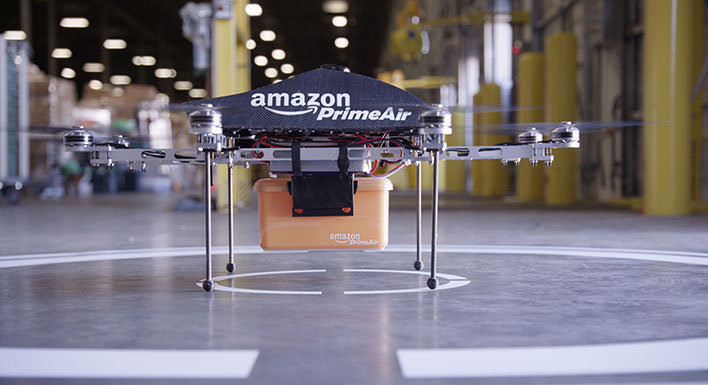Light Hallucination Hack Could Make Amazon Delivery Drones Vulnerable To High-Tech Porch Pirates
As with many professors in science related fields at universities, Qiben has research projects. One of those research projects just so happens to involve drones and making them see things that are not there. Or, you know, hallucinate (in a manner of speaking). In the early stages of experimentation and testing for this project he states that he hand his team "...accidentally broke a drone." The project actually is intended to come up with a simple attack that exploits a vulnerability in drone camera systems that could, in theory, allow a hacker to seize control of a drone from its pilot.
"Imagine that an Amazon delivery drone is under such an attack," Yan said. "Your packages would be effectively seized by the attacker, while the drone pilot has no idea why it’s happening."

The good news is Yan's research team, which calls the trick DoubleStar (GitHub), has also provided insight in that it is actually pretty easy to prevent through simple countermeasures. These can include a simple lens hood for the drone's cameras, or even just simple software updates to allow the drone to differentiate between the light from an attack like this and an actual obstacle.
So is there any real risk to losing your package from this little hack or light trick? Ultimately, it seems like a lot of set up and equipment for a low reward potential. And while plausible, it's probably unlikely, as it's not that easy to control either.
While this research does focus primarily on drones, it also provides some additional concern to other forms of autonomous vehicles. That's because many of them rely on similar sensors and cameras at the consumer level, like Apple's upcoming autonomous vehicle.


